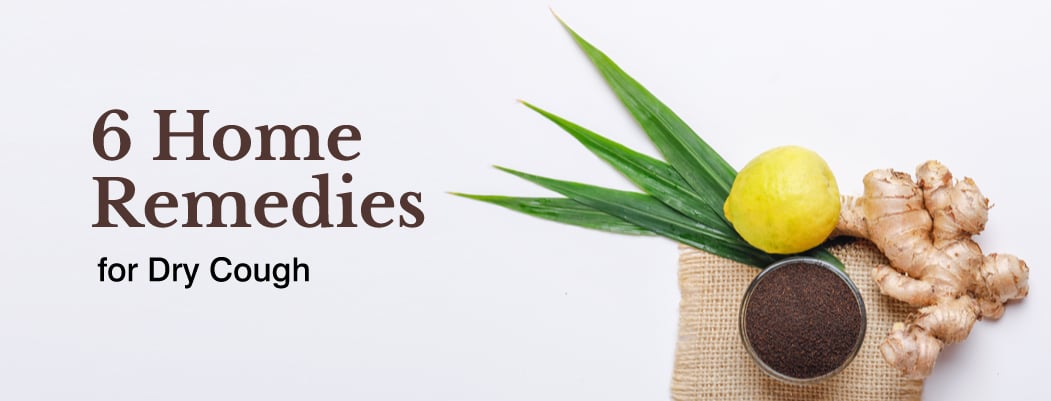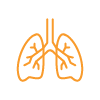How to cure dry cough?
June 24, 2023

What is Dry Cough?
A dry cough is a cough that does not produce phlegm or mucus. It is often characterized by a persistent, irritating tickle in the throat that triggers bouts of coughing. Unlike a productive cough that helps clear the airways, a dry cough can be uncomfortable and frustrating. It can be caused by various factors, including respiratory infections, allergies, irritants, or underlying medical conditions. A dry cough can disrupt daily activities, disturb sleep, and cause throat soreness. Finding relief from a dry cough involves identifying and addressing the underlying cause, as well as utilizing remedies to soothe the throat, reduce inflammation, and promote healing.
Remedies for Dry Cough
- Stay Hydrated: Drink plenty of fluids like water, herbal teas, and warm broths. Hydration helps soothe the throat and thin mucus, making it easier to expel.
- Honey: Honey has natural antibacterial and soothing properties. Mix a teaspoon of honey into warm water or herbal tea and consume it several times a day to relieve cough symptoms.
- Gargle with Saltwater: Mix half a teaspoon of salt into a cup of warm water. Gargle with this solution for 30 seconds and then spit it out. Saltwater helps reduce throat irritation and inflammation.
- Steam Inhalation: Inhale steam from a bowl of hot water or take a warm shower. The steam helps moisturize and soothe the airways, providing relief from a dry cough.
- Humidify the Air: Use a humidifier or place a bowl of water near a heat source to add moisture to the air. This helps soothe the airways and reduce coughing.
- Avoid Irritants: Stay away from irritants like smoke, strong perfumes, and dust. These can further aggravate a dry cough and prolong the healing process.
Prevention of Dry Cough
Preventing a dry cough involves taking steps to minimize exposure to triggers and maintaining a healthy lifestyle. Consider the following preventive measures:
- Practice Good Hygiene: Wash your hands frequently, especially during cold and flu seasons, to minimize the risk of viral infections.
- Keep a Clean Environment: Regularly clean and dust your living space to reduce exposure to allergens and irritants.
- Stay Away from Allergens: Identify and avoid allergens that trigger your cough. Use allergy-proof bedding covers and keep windows closed during peak pollen seasons.
- Quit Smoking: Smoking irritates the throat and airways, making a dry cough worse. If you smoke, quitting is essential for your overall respiratory health.
- Maintain a Healthy Lifestyle: Eat a balanced diet, exercise regularly, and get enough sleep to support your immune system and overall well-being.
- Stay Well-Hydrated: Drink enough fluids throughout the day to keep your airways moist and prevent dryness that can lead to a persistent cough.
- Manage Acid Reflux: If acid reflux is causing your cough, follow a healthy diet, avoid trigger foods, and elevate the head of your bed while sleeping.
When and who to contact your doctor?
- If you have a persistent dry cough that lasts for more than a few weeks or if other concerning symptoms accompany it, it is recommended to consult a doctor. While many cases of dry cough are not severe and can be treated at home, it’s essential to seek medical advice if you experience any of the following:
- Severe or worsening cough: If your cough becomes increasingly severe, or if it is accompanied by chest pain, difficulty breathing, or coughing up blood, you should seek immediate medical attention.
- Duration: If your dry cough persists for more than two to three weeks without improvement, it is advisable to see a doctor.
- Underlying health conditions: If you have a pre-existing health condition such as asthma, chronic obstructive pulmonary disease (COPD), or heart disease, it is advisable to consult your healthcare provider, as they can provide guidance specific to your condition.
- Other symptoms: If you experience additional symptoms such as fever, fatigue, weight loss, night sweats, or changes in appetite, it is essential to consult a doctor.
Summary
Curing a dry cough involves a combination of remedies and preventive strategies. By staying hydrated, using natural remedies like honey and steam inhalation, and taking steps to prevent exposure to triggers, you can effectively alleviate a dry cough. However, if your symptoms persist or worsen, it’s crucial to consult a doctor for proper evaluation and guidance. Remember, each individual’s situation is unique, and personalized advice from a medical expert is invaluable in finding the best approach to cure a dry cough.
People also ask
1. What is the fastest way to cure a dry cough?
The treatment of a dry cough depends on its underlying cause. While there is no “one-size-fits-all” approach, here are some general measures that may help alleviate a dry cough:
- Stay hydrated: Drink plenty of fluids, such as water, herbal tea, or warm broths, to help soothe your throat and thin mucus secretions.
- Humidify the air: Use a humidifier or steamy shower to add moisture, which can help relieve throat irritation and reduce coughing.
- Avoid irritants: Avoid exposure to smoke, allergens, pollutants, and other substances that can irritate your airways and worsen the cough.
- Honey: Consuming honey, either alone or mixed with warm water or tea, can help soothe the throat and reduce coughing. Note that honey should not be given to children under one year of age.
- Rest and self-care: Getting adequate rest, maintaining a healthy lifestyle, and practising good hygiene can support your immune system and help your body recover.
2. Is dry cough serious?
In many cases, a dry cough is not a cause for serious concern and may be due to a minor respiratory infection, allergies, or exposure to irritants. However, in certain situations, a dry cough can be a symptom of a more serious underlying condition. It is important to pay attention to any accompanying symptoms and consult a healthcare professional if you have concerns. Some potential causes of a serious dry cough include:
- Respiratory infections: Conditions such as pneumonia, bronchitis, or tuberculosis can cause a persistent dry cough. If you experience a high fever, chest pain, shortness of breath, or coughing up blood, it may indicate a more severe infection that requires medical attention.
- Asthma: Asthma can manifest as a dry cough, especially when triggered by allergens, exercise, or cold air. If you have a history of asthma or suspect you may have it, it is important to consult a healthcare professional for proper diagnosis and management.
- Gastroesophageal reflux disease (GERD): Acid reflux can cause a chronic dry cough, as stomach acid irritates the throat. If you experience heartburn, regurgitation, or other symptoms of GERD along with your cough, it is advisable to seek medical evaluation.
- Other underlying conditions: Chronic obstructive pulmonary disease (COPD), interstitial lung disease, or lung cancer can present with a persistent dry cough. If you have a history of these conditions or are at higher risk due to factors such as smoking or occupational exposures, it is essential to seek medical evaluation.
3. What causes a dry cough?
Several factors can contribute to the development of a dry cough. Common causes include:
- Respiratory infections: Viral infections, such as the common cold or influenza, can lead to a dry cough. These infections typically resolve on their own within a week or two.
- Allergies: Allergic reactions to substances like pollen, dust mites, pet dander, or certain foods can cause a dry cough. Other allergy symptoms, such as sneezing, itching, or a runny nose often accompany this cough.
- Irritants: Exposure to environmental irritants like smoke, pollution, strong odours, or chemicals can irritate the throat and trigger a dry cough.
- Asthma: Asthma is a chronic condition characterised by inflammation and narrowing of the airways. A dry cough can be an asthma symptom, mainly when triggered by allergens, exercise, or cold air.
- Gastroesophageal reflux disease (GERD): Acid reflux occurs when stomach acid flows back into the oesophagus, irritating. This can lead to a persistent dry cough, mainly when lying down or after eating.
- Other respiratory conditions: Chronic obstructive pulmonary disease (COPD), bronchitis, pneumonia, or lung cancer can also present with a dry cough. These conditions usually have other accompanying symptoms, and medical evaluation is necessary for proper diagnosis.
4. How to stop a dry cough at night?
A dry cough at night can be exceptionally bothersome and disruptive to sleep. Here are some strategies to help alleviate a dry cough during the night:
- Elevate your head: Use an extra pillow or elevate the head of your bed to keep your upper body slightly elevated. This can help reduce postnasal drip and alleviate coughing.
- Honey and warm liquids: Consuming a teaspoon of honey before bedtime or drinking warm liquids, such as herbal tea or warm water with lemon, can help soothe the throat and reduce coughing.
- Steam inhalation: Take a hot shower before bed or use a humidifier in your bedroom to add moisture to the air. Breathing in warm, moist air can help relieve throat irritation and reduce coughing.
- Avoid triggers: If certain triggers worsen your cough, avoid them before bedtime. This may include allergens, smoke, or exposure to cold air.








